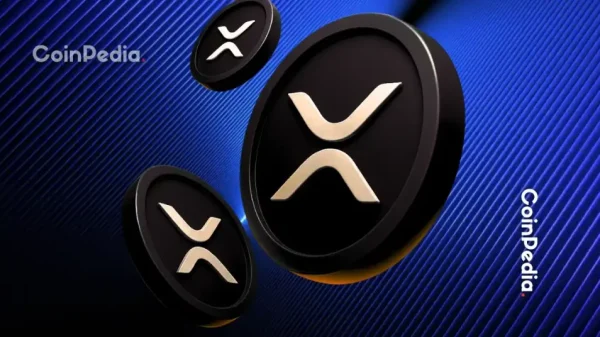
Prop Trading Firms: Opportunities, Risks, and How to Navigate the Challenges
Prop Firms have become very popular recently. You only have to monitor social networks to see the enthusiasm of individual traders for these new offers whose promise is to become a professional trader.
If the promises of Prop Firms seem attractive, we will discover everything you need to know about Prop Firms in this article, including the risks and pitfalls to avoid.Â
We will explore why this type of offer might interest a trader and how to get involved in it in 2024. In conclusion, we will compare a real trading account and subscribing to a Prop Firm to see whether or not it may be interesting to go through a prop firm to become an independent trader.
What Is A Proprietary Trading Firm?
A Prop Firm, or “proprietary firm�, is an investment company that manages only its own capital. One or more experienced traders, typically with several years in banking or hedge funds, traditionally found Prop Firms to establish their own accounts.
For several years, some Prop Firms looking for talented traders have offered independent traders the allocation of capital under management and a sharing of the gains from performance.Â
Generally, the allocation of funds follows a test or evaluation period during which the Prop Firm will measure the skills of the candidate traders.Â
Some Prop Firms charge entry fees to participate in the evaluation period, and you will understand in the rest of this article that this is generally where things go wrong and where we find ourselves at the limit of legality.
What is A Prop Firm in Trading?
Prop trading or proprietary trading represents trading various financial instruments with a firm’s own capital. Prop traders can trade stocks, Forex, or crypto on many trading platforms.
Forex and Crypto prop trading firms enable traders to open trading accounts under their terms and conditions including profit target and loss limit. During the trading day, traders implement various prop trading strategies to meet their profit targets.Â
In the case of successful trading, the firm offers a profit share through a profit split arrangement. We closely monitor the trading period and activity, enforcing any trading restrictions.
Moreover, the evaluation process is essential in determining if traders meet the firm’s criteria. Traders at the prop trading desk must understand and follow guidelines to succeed in proprietary trading.Â
What are the Different Types of Proprietary Firms?
The business model of the Prop Firm is to collect as many subscription or registration fees as possible, then, as we saw a few years ago with binary options, to bet on the fact that most participants will lose.
We have identified three types of business models with Prop Firms. We will decipher them below.
The Prop Firm in Virtual Trading Only
There is a type of Prop Firm with which all transactions only take place in a virtual trading environment (demo) without you knowing it. In this case, all losers’ registration fees pay the winning traders’ winnings.Â
This is very similar to how binary options work, whose objective is to work on the losses of individual traders, which were widely popular before the ban by the AMF due to the dishonest aspect of the offer.
According to a study by SMB Training, the rate of traders failing at the evaluation period stage is around 95%, which is no coincidence.
Also, the conditions required to pass the evaluation period are close to impossible, with double-digit monthly gain targets and a very tight drawdown.
Other studies even announce that only 0.28% of registrants manage to get capital allocation and profits.
In this case, it is important to understand that the $100, $150, $200, or even $400 registration fees that thousands of participants have paid will finance the capital allocation of the few lucky traders.
It should also be noted that the Prop Firm does not finance the entire allocated capital, but only the maximum drawdown imposed.
The Unregulated Broker Disguised as a Prop Firm
There are also Prop Firms that are, in fact, disguised as unregulated stockbrokers who pass all transactions on the OTC as a CFD broker.Â
In this case, the security deposit for margin trading is disguised as a registration fee. This is then a way to pass off an unlicensed brokerage offer as a management offer and to offer leverage greater than the maximum authorised by law.
The trader pays their loss in advance with the registration fees, and they have the right to trade on an artificially inflated capital with leverage. Sometimes, there is not even an evaluation period with this type of offer, or evaluations that are quick (2 or 3 days) and easy.
Access to video training sometimes justifies the amount significantly higher than with other Prop Firms. Note also that some trading training offers integrate a concept close to the Prop Firm after agreeing with a stockbroker. The amount you will have paid will correspond to your losses paid in advance (for example, 90% of the amount) and to the training (for example, 10%).
The Prop Firm Partner of a Futures Broker
This is the type of Proprietary Firm that is probably the most interesting. You have to make sure that the Prop Firm works with a seriously regulated stockbroker and actually places its clients’ orders on futures contracts (which is not always the case, so be careful!).
The advantage of this type of Prop Firm is that we completely eliminate price manipulation and cheating on the part of the Prop Firm since we intervene directly in regulated and centralised markets.
List of Prop Trading Firms
Here is a list of the most popular prop trading firms for your reference:
- Audacity Capital
- Crypto Fund Trader
- Earn2Trade
- FTMO
- FundedNext
- Goat Funded Trader
- Instant Funding
- Lark Funding
- My Funded FX
- Nordic Funder
- The Trading Pit
Trading Conditions
All of these firms have their specific terms and conditions, which come down to the following:
- A maximum loss limit (6 to 8% drawdown);
- A daily loss limit (3 to 5% drawdown);
- A profit target (10 to 15%);
- A minimum number of days of activity (30 days);
- An imposed leverage (max 20:1).
Traders who complete the evaluation period, also called “Challenge�, then receive a capital allocation for a period that is sometimes limited (usually 30 or 90 days). If the duration is limited, you must repeat the evaluation period at the end of the trading period and pay the registration fees again.
In some Prop Firms, they refund the registration fees for the evaluation period if you successfully pass all the tests.
The same restrictive conditions as during the evaluation apply throughout the capital allocation period. Thus, if you exceed the maximum loss level, the capital entrusted to you is withdrawn.
What Are the Risks and Pitfalls to Avoid with Proprietary Firms?
The main risk with Prop Firms is spending large sums of money spread over several months to try to succeed in the evaluation challenge.Â
We have received testimonials from individual traders who have spent up to 6,000 euros in a few months, accumulating attempts with registration fees ranging from 100 to 300 euros. In this case, it is much better to open a classic trading account and deposit 6,000 euros; we will talk about this in the last part of this article.
The trap most often lies in the conditions imposed by the Prop Firm: some evaluations are simply impossible to pass or statistically almost impossible.
Among the criteria that rig the result in favour of a Proprietary Firm, the drawdowns accumulate over time.Â
For example, if you suffered a 2% drawdown the day before yesterday and 3% today… the system counts you as a total drawdown of 5%, and you lose your capital allocation, or you are eliminated from the evaluation period.
Everything is, therefore, played out in the conditions in terms of performance objective and drawdown. Do not be blinded by the large amounts promised to you in management.
The post What Are Prop Firms, And How Does Prop Trading Work? appeared first on FinanceBrokerage.

































